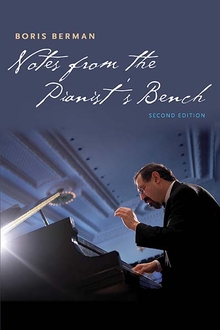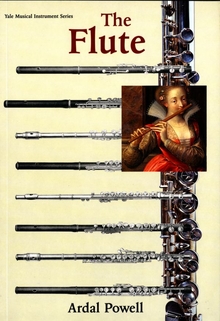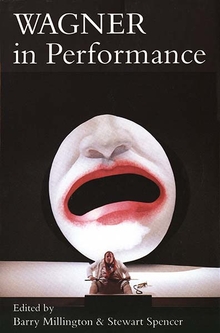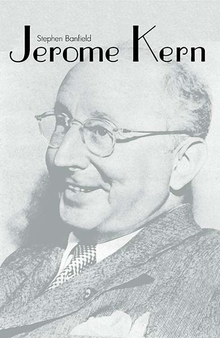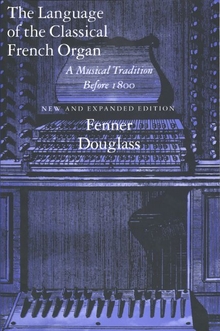Opera and Politics
WARNING
You are viewing an older version of the Yalebooks website. Please visit out new website with more updated information and a better user experience: https://www.yalebooks.com
From Monteverdi to Henze
John Bokina
Out of Print
To what extent do operas express the political and cultural ideas of their age? How do they reflect the composer's view of the changing relations among art, politics, and society? In this book John Bokina focuses on political aspects and meanings of operas from the baroque to the postmodern period, showing the varied ways that operas become sensuous vehicles for the articulation of political ideas.
Bokina begins with an analysis of Monteverdi's three extant operas, which address in an oblique way the political and ideological dualities of aristocratic rule in seventeenth-century Italy. He then moves to Mozart's Don Giovanni, which he views as a celebration of the demise of a predatory aristocracy. He presents Beethoven's Fidelio as an example of the political spirit of a revolution based on republican virtue, and Wagner's Parsifal as a utopian music drama that projects romantic anticapitalist ideals onto an imagined past. He shows that Strauss's Elektra and Schoenberg's Erwartung transform the traditional operatic depiction of madness by reflecting the emerging Freudian psychoanalysis of that era. And he argues that operas by Pfitzner, Hindemith, and Schoenberg explore the political roles of art and the artist, each couching contemporary conditions in an allegory about the fate of art in a historical period of transition. Finally, Bokina offers a reappraisal of Henze's The Bassarids as a political opera that confronts the promise and limits of the sensual-sexual revolt of the twentieth century.
"This book will be of interest not only to musicologists but to opera lovers in general."—Jack M. Balkin
"The virtue of John Bokina's fine book is to take the politics of opera seriously. In clear, lively prose, he offers insightful readings of a dozen operatic masterpieces, showing how they engage the great issues of modern political theory."—Paul Robinson
"What a delightful read! Innovative, beautifully written, and bristling with insight! John Bokina makes us realize how the seemingly airy world of opera reflects real political struggles and our hopes for a better life."—Stephen Eric Bronner
"A fascinating new study."—Economist
"John Bokina's Opera and Politics defines the field for political theorists. . . . Bokina's collection of essays creates a new vital perspective for the additional opera studies that will inevitably follow."—Robert Adelson, Eighteenth Century Current Bibliography
"Bokina's Opera and Politics combines his academic expertise in political theory and lifelong interest in the 'visual and aural spectacle of opera' in a series of elegantly written political exegeses of operatic texts."—Gabriela Cruz, Journal of Interdisciplinary History
"This is a complex and stimulating work which goes well beyond the bounds of its apparent subject matter. . . . [Bokina] does what theorists are good at: he expands our horizons about what politics is in the first place."—Terrell Carver, New Political Science
"Musicologists have much to learn from the perspectives Bokina brings to these works."—Steven Huebner, Notes
“The book is an excellent springboard for thought about how opera fits into and reflects the society that creates it. . . . Lindenberger is persuasive, unforced, and convincing as he confronts the path to opera’s future.”—Mary C. Francis, Opera Quarterly
"An impressive addition. . . . In his well-written, creative, and provocative book, [Bokina] successfully makes the case that opera can provide important insight into political theory. . . . Bokina has given a boffo performance here. Bravo!"—Joseph C. Bertolini, Perspectives on Political Science
"Bokina . . . fell in love with opera as a boy, but who as a political theorist always longed to read about the world of social and political ideas revealed in operas. It has taken him years to write the book that he wanted to read. The results are fascinating and entertaining. . . . Bokina provides an excellent module for the advanced course."—Michael Portillo, Spectator
“John Bokina has produced a book which . . . will be read by opera-buffs with the greatest interest.”—Roger Scruton, Sunday Telegraph
"Bokina shows clearly that the intricacies of medium and message have not been happily resolved in postmodern works like Nixon in China, The Death of Klinghoffer, The Ghosts of Versailles, or Philip Glass' trilogy. In his view, for all their desire to be 'critical, effectual and radical,' opera composers personify 'the lost political hopes of modern Western culture'(p.207). Bokina's project is an unqualified success for having shown as much, critically and succinctly."—Eleni Mahaira-Odoni, Telos
"What fascinates Bokina about opera in this gratifying and overdue inquiry is not its soprano rivalries nor its musical particularities, but its political commentary and social function. Indeed, the author raises many new questions about some of the most frequently studied masterpieces of the genre. . . . At least a dozen operas figure into this provocative and original analysis, and Bokina is unfailingly lucid in his attempt to capture 'the intentional, shared, and transcendental levels of political meaning' he searches for in opera."—Virginia Quarterly Review
Publication Date: August 25, 1997


